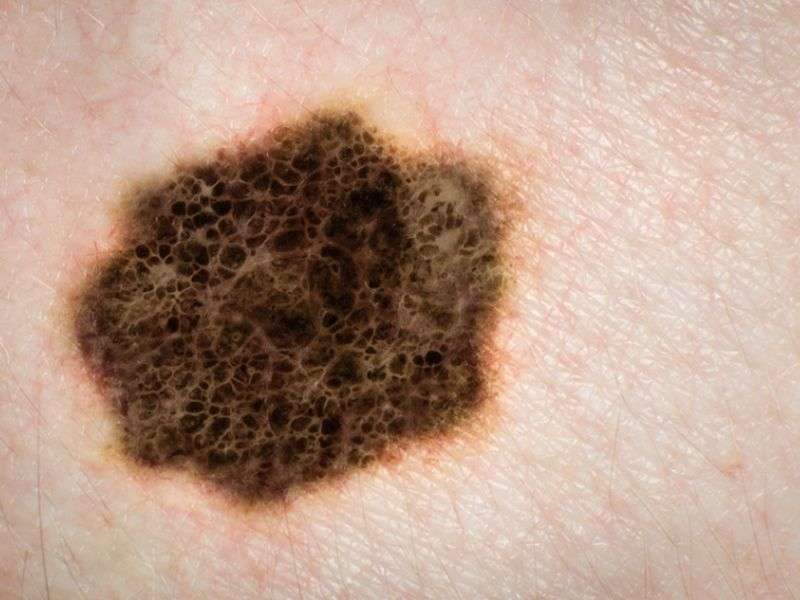Melanoma therapy tied to cutaneous adverse events

(HealthDay)—Anti-programmed cell death (PD)-1 therapy for metastatic melanoma is associated with the development of immune-related cutaneous events, according to research published in the March issue of the Journal of the American Academy of Dermatology.
Shelley Ji Eun Hwang, M.B.B.S., from the University of Sydney, and colleagues reviewed the clinical and histologic information of 82 patients treated with single-agent anti-PD-1 therapy for metastatic melanoma at one institution from May 2012 to February 2015.
The researchers found that 49 percent of patients developed a form of anti-PD-1-associated cutaneous adverse events, including lichenoid reactions and eczema (17 percent), and vitiligo (15 percent). One-quarter of patients were expected to develop their first lichenoid reactions within 8.3 months, and eczema and vitiligo within 10.3 months of therapy. In patients on anti-PD-1 therapy, these adverse events tended to appear together.
"Clinicians need to be aware that immune-related adverse events such as lichenoid reaction, eczema, and vitiligo are common among patients on anti-PD-1 therapy, and they appear late in their treatment," the authors write.
Several authors disclosed financial ties to the pharmaceutical industry.
More information:
Abstract
Full Text
Copyright © 2016 HealthDay. All rights reserved.
















